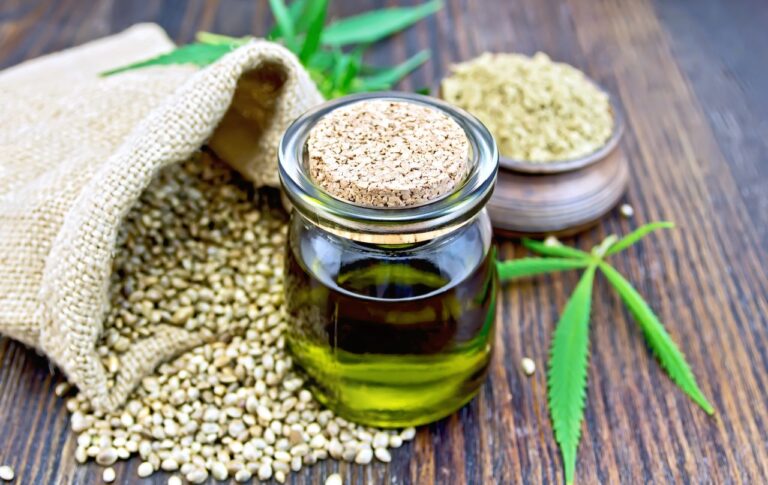Throughout history hemp has been used to make ropes and other equipment, but only recently have we seen the equine industry’s uptake of hemp as a food and a bedding material.
For the last 12,000 years or so, hemp has been grown and processed for its fibres and value as a food.
Hemp seeds have a rich nutrition profile that includes protein, unsaturated fats, fibre, minerals and vitamins. Among other nutrients, hemp is a source of Vitamins E and B6, as well as magnesium, phosphorous, potassium, iron and zinc. Compared to other vegetable oils, hemp oil has one of the lowest levels of unsaturated fats and highest level of beneficial polyunsaturated fats, providing not only omega-3 and omega-6, but also omega-9, and all in a form that’s readily bio-available. Complete with all the essential amino acids, hemp seeds are also very high in protein (around 35%).
Benefits of hemp seeds
- Excellent digestible fibre (around 27%), which is comparable to copra meal
- Horses find hemp very palatable and it is readily digestible in the hind-gut
- Hemp provides a good source of cool energy with 2.5 times more useable energy than protein or carbohydrates
- Unlike soy, hemp does not need to be heat-treated to be edible
- Unlike soy based feeds, hemp is free of phytoestrogens
- Considered a super food, hemp may help ease joint pain and inflammation
- The oils and protein in hemp may contribute to improving skin, coat and hoof health and condition
Unlike soy, nuts and other legumes, hemp does not contain trypsin (enzyme) inhibitors and oligosaccharides, which can cause stomach and gastric upsets.

What is hemp?
Hemp is not the same as cannabis in that it contains almost no delta 9-tetrahydrocannabinol or THC, cannabis’s psychoactive constituent. Nonetheless, the sale of hemp seed foods was prohibited in Australia until November 2017, when amendments to the Australia New Zealand Food Standards allowed them to be legally offered for retail sale.
While there isn’t a great deal of published scientific research into the consumption of hemp by horses, the anecdotal evidence shared across the equine industry is growing. Several US organisations are exploring the use of hemp-based feeds and supplements in the animal food industry, with the focus being on the safety and efficacy for livestock.

Image of Cath riding her stallion, Remi. All these horses are on Equihemp pellets
Why hemp is a great choice
Using temperatures below 38ºC, hemp seed oil is typically cold pressed and does not need to be chemically extracted or refined, making hemp a more stable, and therefore a healthier option.
A source of not only omega-3, omega-6 and omega-9, hemp seed oil also contains gamma linolenic acid (GLA). GLA is an omega-6 fatty acid which may produce a beneficial anti-inflammatory effect.
Horses find hemp highly palatable, and it can be a cost effective way to increase the calories in your horse’s diet without adding the grains that may make them ‘fizzy’. Hemp can assist in maintaining or increasing weight, and may also help to heal gut issues, and improve muscle tone, coat and hoof health, and joint and tendon mobility.

How to feed hemp
Equihemp-Pro: a readily digestible and safe protein source with all the essential amino and fatty acids required for a healthy diet. Hemp protein is gluten free and a good source of cool energy. With a unique combination of essential amino and fatty acids, it is considered to be a super food that may ease joint pain and inflammation, support cardiovascular health, improve the condition of the skin, coat, hooves and tail, and act as a digestive aid.
Equihemp Pellets: the only horse pellets on the market with a completely natural herbal pre-mix, blended with highly nutritious and palatable Australian grown hemp meal, and rich in all the essential amino and fatty acids required for a healthy diet.
The pellets are blended with a variety of nutrient dense and antioxidant rich herbs. Aloe vera, chamomile, fennel and ginger are traditionally considered to have medicinal properties that sooth and support gut health, while beetroot powder and kelp are rich in vitamins, bioflavonoids, and minerals that may support a healthy endocrine system and help to boost immunity.
Hemp Oil is an optimum plant-based source of nutrition that is easy to digest, and may improve your horse’s health. Customers who use hemp oil have reported a dramatic effect in three primary areas: skin and coat; joints and mobility; and mood and anxiety. Added to food or used externally, you are very likely to see a difference within a matter of weeks, with your horse’s coats, ears, eyes, joints and hooves showing signs of improvement. The combination of omega-6 fatty acids, antioxidants, and plant cholesterol may support overall joint health by helping to reduce inflammation, arthritis and pain in damaged joints, while also helping to build a strong immune system and enhanced blood circulation.
Discover McDowells range of hemp products here



